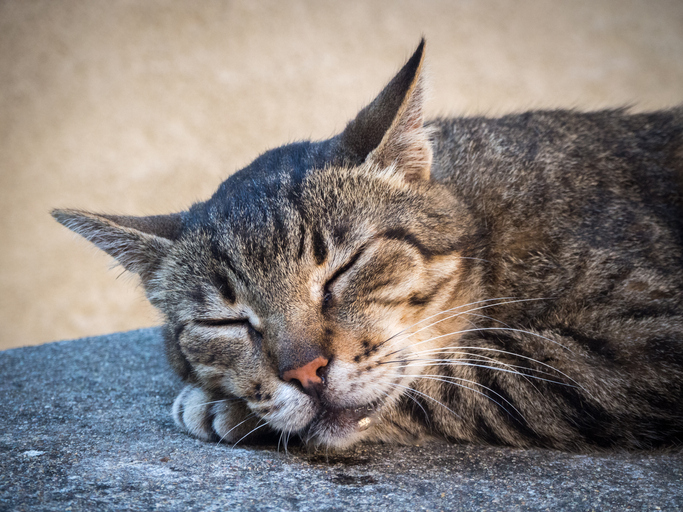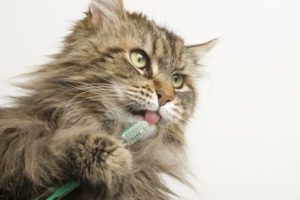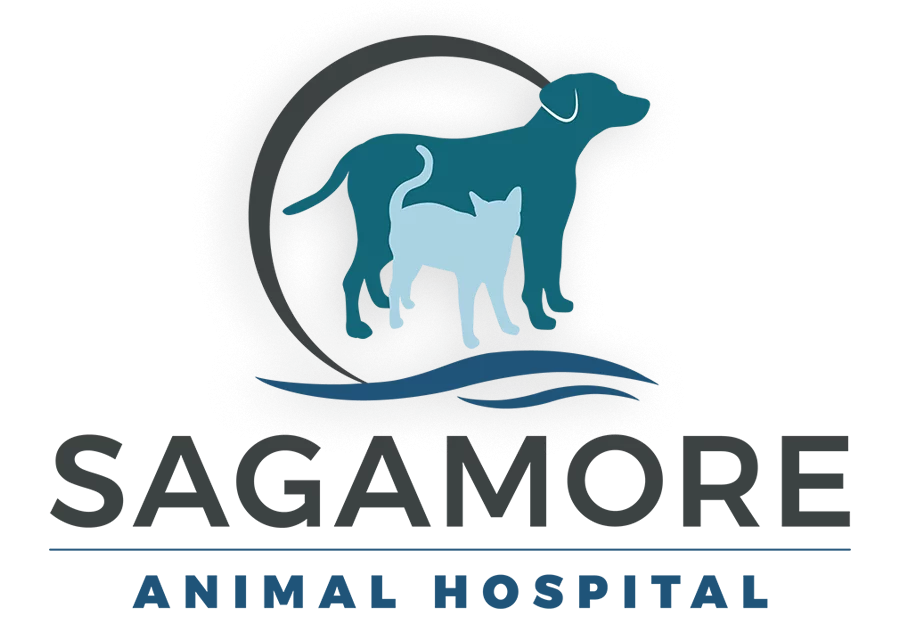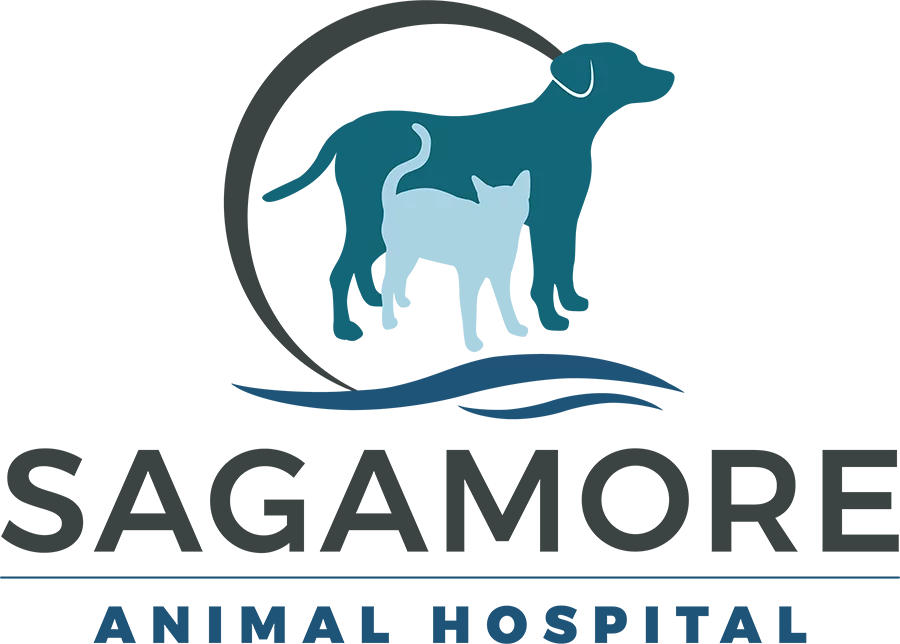Why Does My Cat Drool in Rye, NH?
Cats are often known for their independent and sometimes aloof nature, but they are not known for drooling, or at least not very often! That’s something dogs do. But cats can and do drool on occasion, and if the drooling is excessive, it could be a sign of a medical issue.
Below, we discuss the various causes of cat drooling and how to address it in your own cat. It is also recommended that you contact our hospital at (603) 431-8785 if you ever have questions, or suspect your cat is drooling more than normal. We’re always happy to answer your questions and help you provide the best care for your feline family member.

Potential Reasons for Your Cat’s Drooling
What’s making your cat drool? The reason might fall into one of these categories: pathologic condition, irritation of the mouth, foreign body, or emotional state.
Let’s explore these categories in more detail.
Pathologic Conditions
Cat drooling can occur as a result of a pathologic condition, such as oral cancer or a respiratory virus. These conditions can cause inflammation and ulcerations in the mouth, which affect the salivary glands and increase saliva production.
Irritation of the Mouth
Dental disease, a common health issue in pets over age 3, can cause abnormal drooling in cats. This is because dental disease may result in serious irritation of the mouth, with painful, swollen gums, hardened tartar buildup on the teeth, and infectious bacteria being secreted into the mouth and under the gum line. Drooling is a telltale symptom of dental disease in cats and may appear slightly bloody.
Foreign Body
Swallowing an object that lodges in their mouth or throat can also cause your cat to drool, as they are not able to swallow normally. Other signs of swallowing a foreign body include pawing at the mouth and vomiting. Contact us immediately if you suspect your pet has a foreign body stuck in their mouth or throat.
Emotional State
Excitement, fear, anxiety, and happiness/contentment can all cause drooling in cats as well. Sometimes cats will drool when they are taken to the vet, but they may also drool while they’re snoozing comfortably next to you on the couch.
What Should You Do if Your Cat is Drooling?
If you’re an experienced cat owner, you’re probably accustomed to a little bit of drooling from your pet. But if you suspect the drooling is abnormal and potentially a sign of disease or injury, you should contact your vet soon as you can. Our team at Sagamore Animal Hospital is here to answer all your pet-related questions, and we can help you determine whether your cat’s condition needs to be checked out here at our hospital. We may also ask you to observe your cat and let us know if you see any unusual behaviors, such as pawing at the mouth or gagging/vomiting. Cats are skilled at concealing discomfort and illness, so we might ask to see your pet for an exam just in case.
Dental Care can Reduce Your Cat’s Drooling
Drooling is a common symptom of dental disease, and if dental disease happens to be responsible for your cat’s drooling, we will likely recommend treatment to clean their teeth and eradicate any infectious bacteria in their mouth.
Sagamore Animal Hospital provides anesthesia dental procedures which involve a thorough oral exam, dental X-rays, and deep cleaning of the teeth and gums. In addition to regular teeth cleanings, our team will also work with you to formulate an at-home dental plan so you can keep your cat’s teeth resistant to plaque buildup between cleanings. A dental care regimen will benefit your cat’s overall health in the long run and prevent excessive drooling and other unpleasant dental disease symptoms, such as bad breath, swollen gums, and difficulty eating.

If You’re Uncertain About Your Cat’s Drooling, Contact Us
It’s always better to be cautious if you suspect your cat’s drooling is due to an undiagnosed medical problem. If your feline is drooling just a little bit and otherwise appears happy and healthy, you probably have no cause for concern. A small amount of drooling on occasion is normal for cats. But we also encourage you to play it safe and talk with our team if you’re ever uncertain. Sagamore Animal Hospital will be glad to put your mind at ease and give you any additional information you need to continue taking great care of your pet.
Call our hospital at (603) 431-8785 or make an appointment if you have any questions at all related to your cat’s health and wellbeing.
Recent Posts
About Us
We're proud to have many long-time staff members at our hospital who get along like family and treat their patients and clients the same. The compassion and commitment of our veterinarians and staff make our team a reliable, trusted partner for you and your pet.

